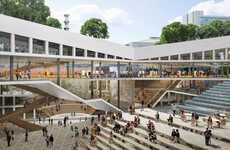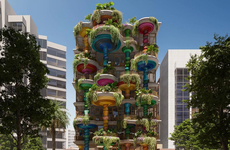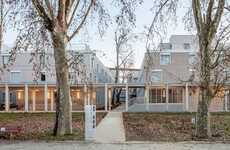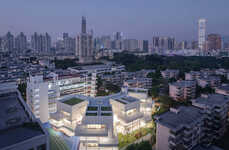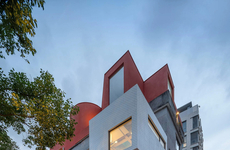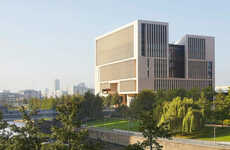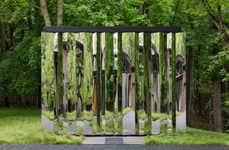
WSP Architects' Building Design is Tall and Erratic
Kalin Ned — April 30, 2018 — Art & Design
References: worldarchitecture.org & dezeen
The Hangzhou Normal University Campus is comprised of a dozen of buildings that have different functions and their own unique architectural designs — one is an irregularly stacked towering structure by local studio WSP Architects.
The firm was tasked with drafting a floorplan for a central building that would provide administrative functions for the college. The capricious composition definitely captures the attention as it is design-forward and effortlessly noticeable in the context of the neighborhood. WSP Architects focused on "a strict modular system" for the university campus that allows the facility to adapt and conduct services with ease. Thanks to the exceptional positioning and aesthetic of the educational establishment, WSP Architects ensured a "reasonable economic cost" and a "higher degree of completion of construction quality."
The firm was tasked with drafting a floorplan for a central building that would provide administrative functions for the college. The capricious composition definitely captures the attention as it is design-forward and effortlessly noticeable in the context of the neighborhood. WSP Architects focused on "a strict modular system" for the university campus that allows the facility to adapt and conduct services with ease. Thanks to the exceptional positioning and aesthetic of the educational establishment, WSP Architects ensured a "reasonable economic cost" and a "higher degree of completion of construction quality."
Trend Themes
1. Irregularly Stacked Buildings - Disruptive opportunity for architects to design attention-grabbing structures that promote adaptability and improve completion quality.
2. Modular Building System - Disruptive opportunity for construction companies to implement a strict modular system for buildings that allow for easy adaptability and versatility.
3. Design-forward Campuses - Disruptive opportunity for universities to incorporate unique architectural designs to create a prominent and adaptable campus environment.
Industry Implications
1. Architecture - Architects can design and construct attention-grabbing buildings that promote adaptability while ensuring reasonable economic costs and higher degree of construction quality.
2. Construction - Construction companies can implement strict modular systems for buildings that promote ease of adaptability and versatility while ensuring efficient and high-quality construction.
3. Higher Education - Universities can incorporate unique architectural designs to create a prominent and adaptable campus environment that promotes innovation and creativity.
2.1
Score
Popularity
Activity
Freshness

